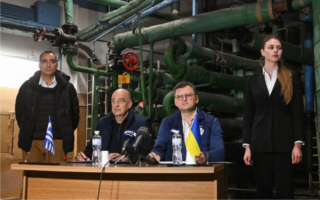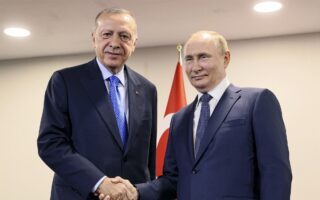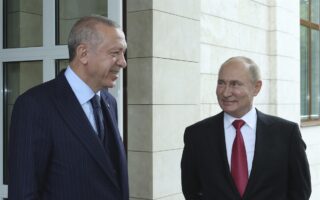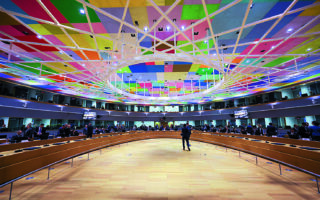The Ukraine war and the East Med
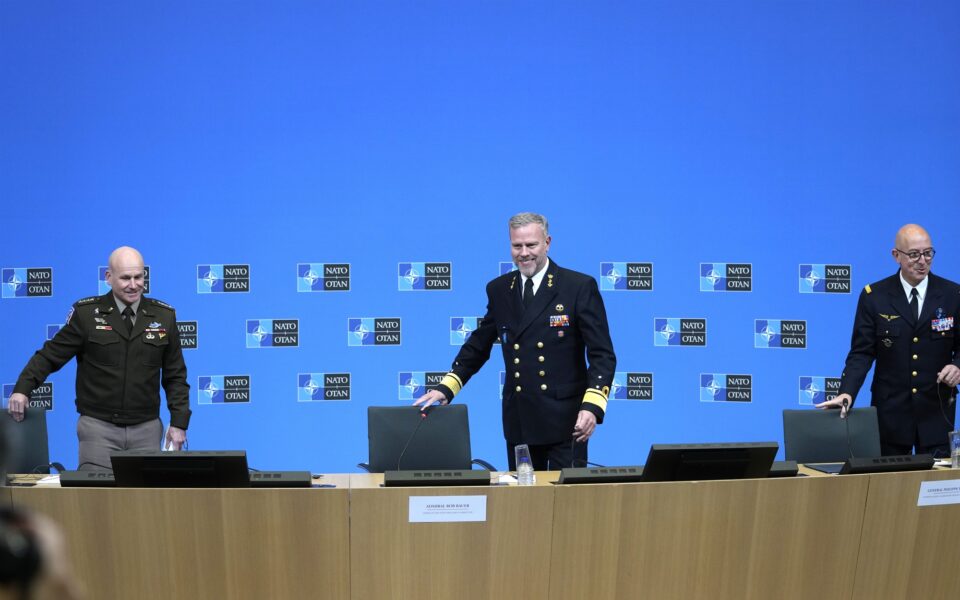
The war in Ukraine is a storm raging in Europe’s east. But its consequences will be felt in the south. The Eastern Mediterranean is likely to be affected in a variety of ways, with particular implications for Greece and its neighbors. Russia’s presence and actions are one element in this equation. The effects of the war on the global order and the aspirations of regional powers are another. To these must be added a general rise in insecurity of all kinds, alongside new ideological cleavages.
Even prior to the war in Ukraine, Russia had returned to the Mediterranean. Moscow’s annexation of Crimea – and arguably its current war in Ukraine – are linked to Russia’s strategic aspirations looking south. Control of Crimea and dominance of the strategic environment in the Black Sea would be essential to Russia’s ability to project naval power into the Mediterranean. The fact that Russia has been unable to control this space – in fact, its position in this regard is much worse than before February 2022 – does not reduce its significance when seen from Moscow. The two regional theaters are intimately connected.
Russia’s interventions in Syria, Libya and the Sahel, directly and indirectly via proxies and mercenaries, have made Moscow an actor in ongoing crises around the Mediterranean and its hinterlands. In different ways, these interventions have been of concern to Turkey and France, and of course, to NATO allies on both sides of the Atlantic. Existing military and arms relationships with Algeria, Syria and even Egypt have been reinforced. That said, and with the important exception of Syria, none of this has made Russia a serious security arbiter in a region where Europe and the US play an overwhelmingly important role. It can even be argued that a demanding, open-ended conflict in Ukraine will make it increasingly difficult for Moscow to sustain an assertive posture in the Mediterranean. The shift of Russian forces and irregular combatants from Syria to Ukraine certainly suggests this possibility.
By any conventional measure, Russia is not capable of wielding military power in a way that would seriously threaten NATO in the Mediterranean. But conventional measures are not necessarily the most meaningful ones. Russia’s political and communications posture around the region, and especially in the Eastern Mediterranean, is much more relevant. Financial ties and (admittedly complex) religious affinities can play a role around Southeast Europe. Israel, with its close strategic ties to transatlantic partners, including the US and Greece, has its own complicated relationship with Moscow. Israel condemns Russia’s war of aggression in Ukraine. But the country’s ability to provide military and intelligence support to Kyiv is not straightforward and is the subject of considerable debate within Israeli strategic circles. The growing ties between Moscow and Tehran may be decisive in this difficult debate.
Turkey is at the center of this evolving geopolitical scene. Greeks will naturally ask about the implications of the war in Ukraine and the prospect of a durable confrontation with Russia for Turkish regional behavior. The reality of an election year in Turkey only adds to the uncertainty. In recent years, the meaningful detente that had prevailed between Athens and Ankara since the late 1990s has broken down, posing serious risks for stability in the Aegean and the Eastern Mediterranean. Ankara’s rhetorical posture has been aggressive. This has also been true on an operational level, although with some limits.
Despite the atmosphere of overheated nationalism, Ankara surely does not seek a conflict that risks the complete collapse of its Western ties precisely as the regional security picture darkens in unpredictable ways. But things can go wrong, and the risk of incidents and escalation is very real. It goes without saying that Russia is a beneficiary of these tensions inside NATO. In truth, Ankara should have a stake in avoiding disputes that could, ultimately, result in a weakening of confidence in Alliance security guarantees. Turkey is fully exposed to the risk of a more direct clash with Russia in the Black Sea, or in Syria. Article V commitments are not automatic. They require a political consensus that Ankara could jeopardize through intra-alliance frictions.
Indeed, the chances of NATO and Russia coming into direct conflict are not confined to the eastern flank of the Alliance, to the Baltic, the Arctic or the Black Sea. Russian and NATO member-forces operate in close proximity in Syria, the Sahel and in the Mediterranean. Again, things can go wrong, with accidents and misjudgments leading to escalation. In this context, it is troubling that many of the air and maritime risk reduction arrangements put in place between East and West during the Cold War have lapsed or are ignored.
The chances of NATO and Russia coming into direct conflict are not confined to the eastern flank of the Alliance, to the Baltic, the Arctic or the Black Sea
The Ukraine war has led to a food security crisis around the Southern Mediterranean, accompanied by the risk of energy-driven economic pressures affecting already hard-pressed societies in North Africa and the Levant. This can have pronounced implications for political stability in places like Egypt and Lebanon, as well as the Horn of Africa. Domestic instability around the Mediterranean and further afield would have direct consequences for Southern Europe. Migration flows across the Mediterranean are already approaching levels not seen since the acute migration crisis of 2015. The war in Ukraine has added further pressures, with implications for human security – and European politics.
Sanctions policy will be another source of friction. The war has produced an extraordinarily concerted response from Western partners, with successive waves of sanctions. Thus far, the sanctions have done little to change Russia behavior. They have been much more impressive as a vehicle for international cohesion, and perhaps as punishment. That said, sanctions have had a mixed reception around the Eastern Mediterranean. Turkey is allergic to sanctions, in principle, and its own financial travails give it reasons to eschew the economic containment of Moscow. Greece and Cyprus will look to stay within the EU mainstream, but there are clear commercial reasons for limiting the harm to shipping and tourism.
Is there a bright spot in this very disturbing assessment? Possibly, in terms of the longer-term outlook for energy development. To date, much of the energy and infrastructure potential in the Eastern Mediterranean has remained aspirational. Only Egypt and, to an extent, Israel have realized substantial benefit from the region’s offshore energy reserves. This could be set to change. The drive to reorient Europe’s energy supply away from Russian sources could lead to a broad increase in support and finance for projects on the southern periphery of the continent. This could include hydrogen production as well as hydrocarbons. The shift from Russian sources could increase the commercial viability of many prospective development and pipeline projects. It might even lead to the integration of Turkey within existing East Med arrangements for energy cooperation, a potentially transforming development for energy commerce, and for regional stability. Renewables, too, can be part of the equation with new power transmission projects.
The Ukraine war may be a protracted storm in the east, but thunder will be heard in the south, not least in the Eastern Mediterranean.
Ian O. Lesser is vice president at the German Marshall Fund of the United States.
